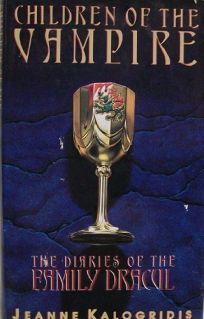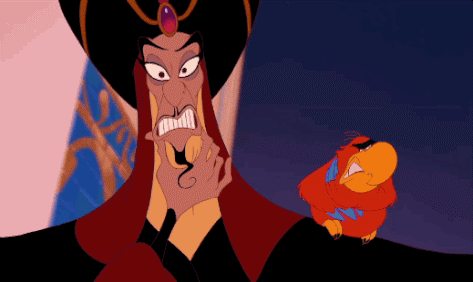
Children of the Vampire, by Jeanne Kalogridis
(The Diaries of the Family Dracul, Book Two)
© 1995 Delacorte Press
After finishing the the first book in this series, the deliciously-disgusting and deeply disturbing Covenant with the Vampire, I was eager and excited to dive into this sequel, which picks up mere hours after the first entry left off. Unfortunately, despite a very strong opening and a taut overall construction, I found that my eagerness for more information on the origins and nature of the infamous Count Dracula was hampered by lopsided dramatic structure, and the introduction of several new elements which I personally find incongruous with the Dracula mythos, and with vampires in general.
[Obviously, this being the second in a series, reviewing Children of the Vampire will entail spoilers for the ending and major plot developments of the previous book, Covenant with the Vampire. Consider yourself forewarned and forearmed.]
Children begins with an excerpt from Covenant: two diary entries which explain Vlad Dracul's origin as strigoi, the true natures of his no-less-than three secret covenants — one with the townsfolk who provide him with victims, one with the eldest male of his mortal descendants who disposes of his victims' bodies to prevent them from rising as undead, and one with the Devil himself (the details of which are as-yet unknown). As Arkady's (now-undead) sister Zsuzsanna explains, "The soul of the eldest surviving son of each Tsepesh generation: that is the gold with which he purchases his immortality."
As I've stated previously, the opening of Children is highly compelling, beginning with a description of Arkady's first, doomed attempt to slay the monster who made him one of the undead at the end of the previous installment. This is honestly one of the finest bits of exposition I've ever read, and it beautifully illustrates the ungodly strength against which Arkady has arrayed himself. I'm going to quote at length from this passage, because it's just. That. Damn. Good.
I leapt at him with the stake, aiming to plunge deep it into his chest. As I did so, he stepped aside with supernatural speed and grace—and caught the hand that held the stake, with such might that my arm was pulled from its socket.
I howled, tried to wrest free, but his strength outmatched mine tenfold; with a brutal yank, he tore the arm from me, leaving my shoulder a stump that spewed my latest victim's blood. As I watched, stunned, he tossed it—the fingers still clutching the stake—with casual grace into the fire.
But I too was no longer mortal; so, neither, was my wound. The pain blinded for one brief brilliant instant, then transformed into pure energizing rage. Again I charged—this time knocking V. into the flames.
As he struggled to rise, hair and waistcoat ablaze, I retrieved my severed limb—only to realise, with amazement, that another had instantaneously and completely regrown to take its place. I snatched the charred stake from my erstwhile fingers and, oblivious to its blistering heat, rushed with it at V.
To my surprise, he spread his arms in welcome, a smouldering, willing target that wore the Devil's own grin. I struck out with every shred of my newfound immortal strength, determined to drive the stake clear through his cold heart; struck out again. Again. Again.
The stake would not pierce him.
Like a madman, I flailed at him with it—but it was as though the very air itself formed an impenetrable cushion above his chest. I hammered away until the wood itself began to splinter. All the while, he laughed, soft and low, with the condescension of an adult watching a helplessly furious child; but them his amusement faded and turned to murderous fury.
I know, right?
After his abortive attempt on Vlad's (un)life, Arkady lays low in Vienna for a while, until he gets a visit from his dear old sister Zsuzsanna, who shows up with two drunken victims as a peace-offering. She instructs her brother in the subtle art of seduction, but the scene turns horrific when Arkady realizes that she's used her vampiric mesmerism (and the heady rush from feeding off a pair of wine-sops) to trick him into having drunken sex with her, his own sister!
 |
| EEEEEUUUUUGHHHH! |
After this abrupt splash of cold water on what had been an entertaining scene which walked the fine line between horror and voyeurism, we're told that Zsuza transgressed this most ancient of boundaries in the hopes of conceiving a dhampir: apparently in this mythos (and real-world Slavic folklore), vampires retain the ability to reproduce during their first year after being turned. This seems like a big change to the generally-accepted rules of vampirism, but I was willing to let it slide if the author could to something interesting with it. Unfortunately, she never does. That's right, Ms. Kalogridis just blue-balls her readers purely to fuck with us, because nothing ever comes of this development! Zsuza does not conceive, and asides from establishing that she really regrets never having children of her own while she was alive, the whole incest shocker contributes nothing to the overall plot! The author could have just had Zsuzsa say "I really regret not having kids while I was alive", she didn't have to set us up with erotic expectation and then shove a steaming platter of incest in our faces!
I mean really, who does that to their readers?
Anyway, Zsuzsa tells Arkady he's not strong enough to challenge Vlad (duh), but he can get stronger by training at the Scholomance, a school for the black arts that's hidden somewhere in the Carpathian Mountains. Off he goes into the wild black yonder, and the story jumps ahead twenty-six years to Amsterdam, where Mary Windham Tsepesh (now known as Mary Tsepesh Van Helsing) has just buried her second husband, the kindly doctor who helped the Tsepeshes to spirit away their infant son Stefan from Vlad's clutches at the end of the last book. It kind of bothered me that the good doctor went by the assumed name "Dr Kohl" while travelling to Castle Dracula in the last book, instead of just using his real name. Seems like a cheap way of ramping up tension, by revealing that he was hiding his identity for no discernible reason.
Overall, the novel's dramatic structure feels lopsided. The climax is only two-thirds of the way through the book. Despite its power (and there is a revelation which turns the entire plot of the novel UPSIDE DOWN!), the fact that the denouement is SO LONG makes this climax seem anticlimactic, even though in the strictest sense, it isn't.
I guess I'm feeling a little trepidation that so many seemingly disparate elements have been introduced, but still intrigued enough to see where the final installment takes me. The friend who loaned me the series said she didn't remember much about the second book;; it's the first and the third which stand out in her memory. Home fully that's a sign of good things to come. As always, I'll let you know how it all turns out, Dear Readers.
I guess I'm feeling a little trepidation that so many seemingly disparate elements have been introduced, but still intrigued enough to see where the final installment takes me. The friend who loaned me the series said she didn't remember much about the second book;; it's the first and the third which stand out in her memory. Home fully that's a sign of good things to come. As always, I'll let you know how it all turns out, Dear Readers.
